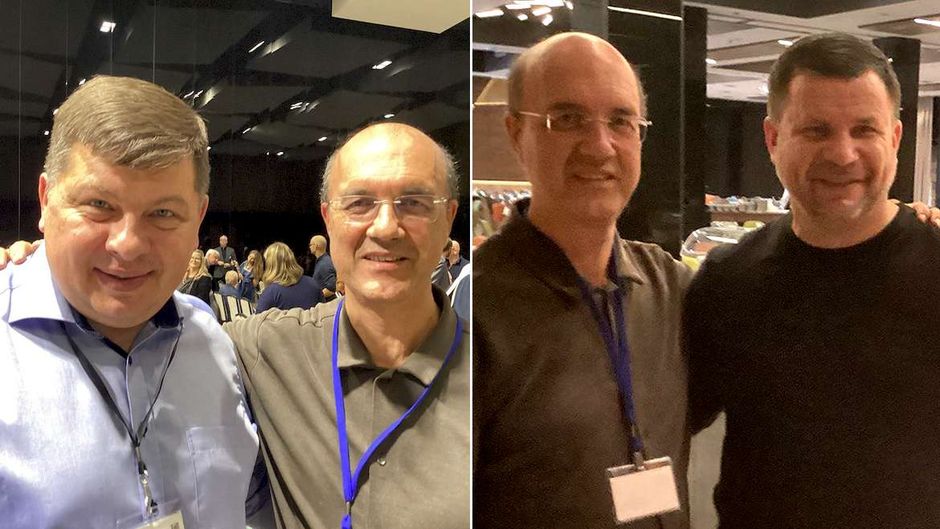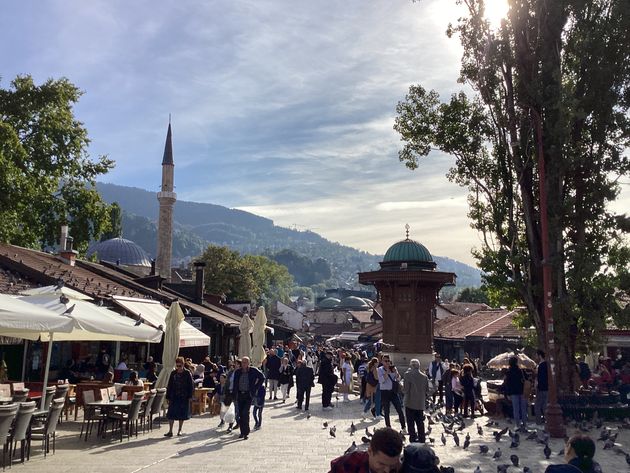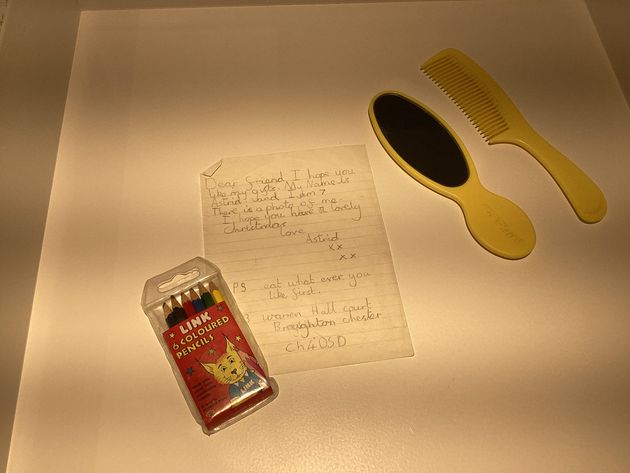Hope for Europe in Sarajevo
In the midst of a Europe dying of scepticism and shrinking back in fear and pain, there is still room for hope, and that hope is brought by the children of God.
12 OCTOBER 2022 · 11:30 CET

The Evangelical European Alliance (EEA) held the latest edition of Hope for Europe in Sarajevo.
It is a meeting that encourages us evangelicals to be aware of our contribution as instruments of hope in an increasingly sceptical Europe.
I come from Galicia, the Finis Terrae, from the end of the earth, where Europe says goodbye to the sun in the sea every day, so arriving in Sarajevo was quite a journey.
I made three layovers, one of them in Vienna, and there I could contemplate the flat and calm reflection of the Belvedere Palace in its pond at sunset, like a reflection of the calmness in which we fall asleep in this part of the world.
Sarajevo awakens us from that placid sleep we believe we will enjoy forever; it was there, on the Latin Bridge, that World War I began, and in the 1990s we had what we thought would be Europe's last war in Bosnia.
But just over 700 km from Sarajevo there is now a new conflict with realistic nuclear threats; it was inevitable for me to integrate all the messages I was receiving in Hope for Europe into the geographical context in which we were, so full of conflict, threat and permanent traces of war.
It has been a challenge to speak of hope for Europe in Sarajevo.
Jeff Fountain, the president of the Schuman Centre for European Studies, framed the start by asking whether there is still hope for Europe.
It is true that this decadent, post-Christian, value-less Europe, caught up in challenging peace, social harmony or the democratic system itself, causes a sense of scepticism among believers, but scepticism destroys any possibility of change.
Jeff challenged us to be instruments of peace and renewal, grounded in a biblical perspective of history, in the promises of God, the assurance of the restoration of all things in Christ, the eschatological confidence of a world in which justice will dwell, and in the meantime we pray, hope and work for God to bring about a new awakening in Europe.
It was a pleasure to have an enriching personal conversation with him afterwards.

The rest of the meeting had a balanced variety of activities, with plenaries, biblical reflections, worship, meetings of common interest groups, networking, moments of prayer and the general assembly of the European Evangelical Alliance.
But the times for personal encounters, sharing experiences, vision, projects and fellowship were special. It is not possible to summarise so many enriching insights, so I will share with you only a few personal highlights.
In March I heard the President of the Guatemalan Parliament, dear sister Shirley Rivera, end a presentation by singing a chorus. In Sarajevo, Lausanne Movement Co-Regional Director for Europe, Usha Reifsnider began her brilliant preaching by singing a chorus as well.
She challenged us to open the square that encompasses the emphasis on conversionism, biblicism, cross-centrism and activism, and to put Christ at the centre of our proclamation: "Do we want to bring people to the church or to Christ?
There was a very emotional moment when we prayed for Ukraine and Russia. It was a time of unity in intercession, trusting that the effective prayer of the righteous can transform the course of history. I was able to embrace Vitaly and Igor from the Russian and Ukrainian Alliances.
I met two sisters with great vitality, both with a disability: Gesina, Dutch, with blue eyes full of peace and security, has years of experience and spectacular work in Malawi and Albania; Martina, German, noticed that many Ukrainian refugees were being hosted by several countries, but few were caring for the disabled, so she took on the difficult task of bringing in as many as she could; with the full support of the German Alliance, she led the arrival of 500!
With the Danish JØrn we made progress in his project of approaching MEPs so that they can get to know our reality as evangelicals. We were able to meet again with members of the European Alliance's ongoing working groups, such as those on socio-political action or the Advocacy Network.
At the meeting of secretaries general we learned from each other's experiences in an atmosphere of mutual support and fraternity.
We bid farewell to Thomas Bucher and welcomed Connie and Jan as new secretaries general in bi-presidency.
Thomas Schirrmacher, secretary general of the World Alliance (WEA), closed the meeting stating that "the call to the unity of the body of Christ is a call to the cooperation of the very divergent parts of the body.
This is an unavoidable challenge for our organisation: WEA unity must be built in such a way that every national Alliance sees that its positions are respected and ensures that WEA agreements and public manifestations allow everyone to feel comfortable, never forced.
The Balkans is a place where the cruelty of the fruits of the Fall is evident, and equally evident are the fruits of lives transformed by Christ.
One day I had lunch with Vladica, a Serbian gypsy pastor. I was impressed by the depth of the bonds that transcend borders, starting with those of faith; he told me that fraternity is full among Roma brothers and sisters in the Balkan countries: they have managed to establish bonds of affection and trust in the midst of an environment full of resentment and pain.
Eva González Mrsic, granddaughter of the well-known brother Benigno González, married a Croatian and started a church-planting adventure in Split; they were caught in the war and left for Catalonia, but soon returned with humanitarian aid; she told me how on their way back they saw missiles passing over their car. This January her husband passed into the presence of the Lord and she decided to stay in Croatia; since then I have been praying for her.
Rafael and Priscila came from Costa Rica to Bosnia as missionaries; the cold weather is hard on them, but they are full of optimism and told me with enthusiasm about their contacts with the Muslims.
In the dark night of the Balkans, each one of them is a light that gives reason to hope for Europe.
The Children's War Museum in Sarajevo collects stories of children who suffered, along with some of their personal belongings: the handbag of the grandmother killed in a bombing, the jersey knitted by the mother....

Two of them particularly impressed me: a girl presents her photo on her mother's lap; she was the result of a rape against her mother; she tells how in addition to this suffering she suffered the contempt of her neighbours because of her origin, but she stresses that there is no shame in her life, because she carries in her heart the love of her mother and of the good man who later married her mother, “I am my mother's little daughter!”.
The other is brighter: a letter from a British girl, Astrid, sent to an unknown Bosnian girl, Lejla, accompanied by a few crayons, a comb and a mirror. For Lejla this was a constant light of hope in the midst of the dark night of the war.
Two memories: a photo and a letter, one showing the terrible fruit of sin and the other the loving grace of God.
Clearly, as Jeff Fountain said at the beginning, in the midst of a Europe dying of scepticism and shrinking back in fear and pain, there is still room for hope, and that hope is brought by the children of God. Let us never extinguish it!
X. Manuel Suárez is a doctor and Vice President of the Spanish Evangelical Alliance.
Published in: Evangelical Focus - Features - Hope for Europe in Sarajevo
